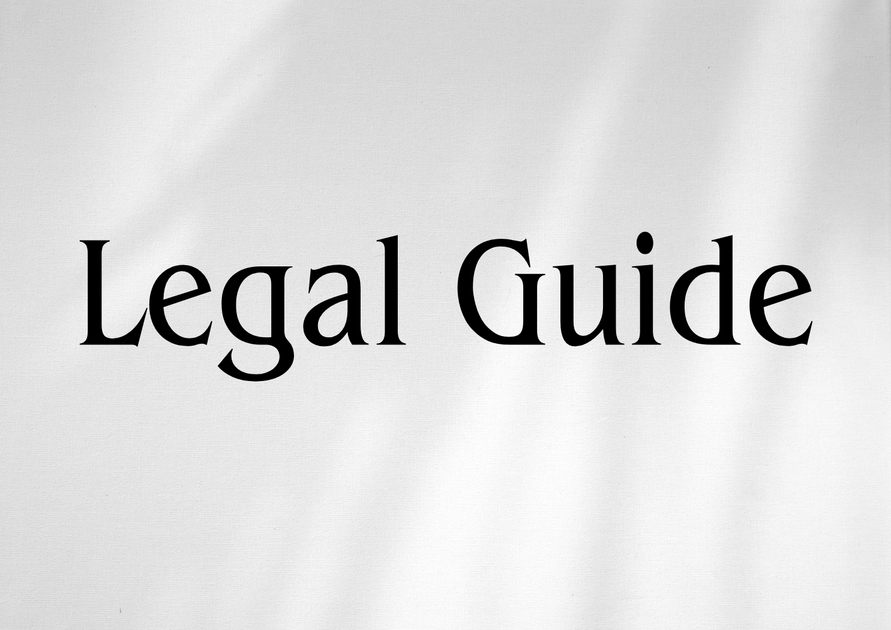Introduction: The Crucial Role of Board Directors in Today’s GCC Legal Landscape
With accelerated economic diversification and cross-border business initiatives in the Gulf Cooperation Council (GCC), the expectations and responsibilities placed on corporate boards have never been greater. As the Kingdom of Saudi Arabia (KSA) continues to update its company law—especially with the recent enactment and amendments to the Saudi Companies Law—directors are now facing increased scrutiny, robust compliance requirements, and potentially far-reaching liabilities. For UAE-based conglomerates, multinational investors, and executive teams operating in or with Saudi businesses, a nuanced understanding of these board-level changes is not only prudent—it is mission-critical for maintaining compliance, mitigating risk, and ensuring strategic alignment with modern GCC corporate governance standards.
This article provides a senior-level, consultancy-grade analysis of the legal duties, powers, and liabilities imposed on board directors under Saudi law, with a primary focus on the legislative developments culminating in the Saudi Companies Law of 2022 (Royal Decree No. M/132), and guidance from the Saudi Ministry of Commerce and the Capital Market Authority (CMA). Drawing critical comparisons to UAE law and offering practical compliance strategies, this briefing empowers UAE-based legal counsel, C-suites, and corporate directors to safeguard their organizations amidst a more regulated regional business environment.
Table of Contents
- Overview of the Legal Framework Governing Saudi Boards
- Board Structure, Appointment, and Powers
- Fiduciary Duties of Directors: Loyalty, Diligence, and Care
- Liabilities and Penalties: Where Directors Face Exposure
- Case Studies and Hypothetical Scenarios
- Risk Management and Compliance Best Practices
- Comparing Saudi and UAE Board Regulations
- Conclusion: Shaping Regional Governance—2025 and Beyond
Overview of the Legal Framework Governing Saudi Boards
The Pillars: Saudi Companies Law and Regulatory Guidance
The cornerstone of board governance in Saudi Arabia is the Companies Law of 2022 (Royal Decree No. M/132), as further interpreted and enforced by the Ministry of Commerce and, for publicly-listed entities, the Saudi Capital Market Authority (CMA) via the CMA Corporate Governance Regulations. This legislative framework codifies directors’ appointment, authority, duties, liabilities, and the standards of conduct expected from company officers.
Key sources include:
- Saudi Companies Law 2022 (Royal Decree No. M/132)
- CMA Corporate Governance Regulations (latest consolidated version published 2023)
- Ministerial Decisions and implementing guidelines from the Ministry of Commerce
These legal sources set out a progressive, principle-based approach to board direction and accountability—mirroring global corporate governance trends and strengthening director oversight, transparency, and stakeholder protection.
Board Structure, Appointment, and Powers
Board Formation: Composition and Mandate
Under the Saudi Companies Law, the board is the principal governing body, charged with the company’s direction, oversight, and long-term success. Board mandates are detailed in the articles of association but must always comply with minimum standards set under statutory law and related regulations.
| Company Type | Minimum Number of Directors | Appointment Terms | Independent Directors Required? |
|---|---|---|---|
| Joint Stock Company (JSC) | 3 | Determined by GA (max 3 years per term) | Yes, at least 1/3 for listed companies |
| Limited Liability Company (LLC) | 1 | As per AoA, max 5 years | Not required, but advisable |
For listed entities, the Corporate Governance Regulations (CGR) set stricter definitions and ratios for independent directors and board subcommittees.
Board Powers: Delegation and Limitations
Boards are entrusted with broad powers to manage company affairs, including strategic planning, risk management, signing contracts, and appointing executives. However, certain reserved matters—such as amendment of articles, merger decisions, or capital increases—remain within the shareholders’ exclusive authority or may require regulatory consent.
| Delegable Powers | Non-Delegable Powers |
|---|---|
| Day-to-day managerial decisions; executive appointments; media/PR policy; financial transactions within approved budgets | Amending articles; company mergers/divestitures; capital increases/decreases; approval of annual accounts |
Fiduciary Duties of Directors: Loyalty, Diligence, and Care
Codified Duties: More than Just Formalities
Directors in Saudi Arabia must discharge fiduciary duties comparable to those under the UAE’s Federal Decree-Law No. 32 of 2021 (concerning commercial companies), albeit with unique Saudi emphases shaped by local jurisprudence and regulatory priorities. These core duties include:
- Duty of Loyalty: Directors must act honestly and prioritize the company’s interests over their own or those of any third party. This means avoiding conflicts of interest and self-dealing transactions unless fully disclosed and approved per the law.
- Duty of Care and Diligence: Directors must act with the care of a prudent person under similar circumstances, including actively participating in meetings, understanding business risks, and ensuring accuracy in financial disclosures.
- Duty to Comply with Law and AoA: All actions must comply with the Companies Law, ministerial regulations, and the company’s articles of association.
Conflicts of Interest: Disclosure and Shareholder Oversight
Saudi law imposes a strict regime for managing director conflicts of interest, particularly for JSCs and public companies. Any board member who—personally or through a related party—has an interest (direct or indirect) in corporate contracts or ventures must notify the board and abstain from voting on related resolutions. Furthermore, material related-party contracts may require shareholder approval and, in the case of listed companies, disclosure to the CMA and market.
| Action Item | Required By |
|---|---|
| Disclosure to Board | Companies Law Art. 27; CGR Art. 48 |
| Non-participation in voting | Companies Law Art. 28 |
| Shareholder approval (where applicable) | Companies Law Art. 29; CGR Art. 50 |
| Market disclosure (listed companies) | CMA Guidance, CGR |
Example: When Disclosure Lapses
Suppose a director in a Saudi LLC authorizes a procurement contract with a supplier where his spouse is a silent partner. If the board is not informed and proper approvals are not obtained, both the contract and the director may face investigation, sanctions, and civil liability, regardless of the contract’s benefit to the company.
Liabilities and Penalties: Where Directors Face Exposure
Statutory and Civil Liabilities
Directors are exposed to a range of liabilities under the Companies Law and related regulations. The two broad categories include:
- Statutory Liability: Directors can be held personally liable for breaches of the Companies Law—for example, failure to convene general assemblies, improper distributions, or non-disclosure of related party transactions.
- Civil Liability: Directors who cause harm to the company, shareholders, or third parties through misconduct, negligence, or willful default are subject to compensation claims. Lawsuits may be brought by the company, shareholders, or even creditors.
Criminal Liability and Regulatory Penalties
Certain breaches, such as falsification of records, fraud, or violations of public offering requirements, may trigger criminal prosecution, leading to fines and custodial sentences. For instance:
- Failure to maintain accurate financial records—may result in fines up to SAR 1 million
- Fraud or concealment of material facts—imprisonment for up to five years and/or substantial penalties, as per Companies Law Art. 234
- Failure to file timely annual accounts—subject to regulatory action and reputational damage
| Breach | Penalty (Old Law) | Penalty (Current Law) |
|---|---|---|
| Late financial filings | SAR 10,000–100,000 | SAR 100,000–500,000; possible disqualification |
| Undisclosed conflict of interest | Administrative warning, censure | Fines up to SAR 1 million; possible criminal charge |
| Fraudulent misstatements | SAR 100,000–300,000 | SAR 500,000–5,000,000 and/or imprisonment |
Visual Suggestion: Compliance Penalty Flowchart—illustrate escalation of penalties from administrative to criminal for illustrative breaches
D&O Insurance: Essential but Not Absolute Shield
While Director and Officer (D&O) liability insurance is increasingly prevalent—especially among GCC conglomerates—it is important for UAE-based management to recognize the limitations under Saudi law. Certain willful and criminal acts, as well as gross negligence, cannot be indemnified under insurance policies or company indemnity provisions.
Case Studies and Hypothetical Scenarios
Case Study 1: Director Misuse of Company Assets
A Saudi joint stock company’s director used company funds to privately lease a luxury vehicle. Post-year-end audit flagged the expense, with the director’s explanation deemed unsatisfactory during internal review. The shareholders, advised by external counsel, brought a claim for breach of duty and misuse of company assets. On investigation, the Ministry of Commerce applied an administrative fine, while shareholders secured civil compensation. The director was also banned from board participation in KSA for three years.
Case Study 2: Overdue Financial Statements in an LLC
An LLC failed to file its annual accounts on time for three consecutive years, under the mistaken belief that ‘silent’ operations did not warrant strict compliance. Following a targeted audit, the Ministry imposed a SAR 300,000 fine against the board members (joint and several liability), suspended business licenses, and referred the case for criminal investigation for possible concealment.
Practical Guidance
These scenarios highlight the importance of meticulous recordkeeping, robust oversight of director conduct, and prompt engagement with external auditors and regulatory counsel. Directors must ensure that all material acts are disclosed, and that statutory filings are performed in a timely manner—even where day-to-day operations appear dormant or routine.
Risk Management and Compliance Best Practices
Proactive Compliance Infrastructure
- Annual Board Induction: Ensure every director (especially UAE nationals serving Saudi companies) undergoes an annual induction covering the Companies Law, ministerial requirements, and the articles of association.
- Conflict of Interest Registers: Maintain a live register and require quarterly director confirmations of independence.
- Board Minutes and Filings: Verify that all resolutions are formally documented, stored, and—where required—reported to the Ministry of Commerce and/or CMA.
- Legal and Regulatory Audit: Engage external legal counsel every two years to conduct a comprehensive review of board practices, filings, and conflict management.
- D&O Policy Review: Annually review D&O coverage to ensure scope, exclusions, and applicable Saudi legal limitations are understood at C-suite and board levels.
Sample Compliance Checklist: Board Directors in Saudi Arabia
| Action | Responsible | Frequency |
|---|---|---|
| Director induction/training | Company Secretary/HR | Annual or upon appointment |
| Update and sign conflict of interest statement | All board members | Quarterly |
| Review related party transactions | Audit Committee | Quarterly |
| File annual accounts/statements | Board/Finance | Yearly |
| D&O insurance policy review | Legal/Finance | Annual |
Comparing Saudi and UAE Board Regulations
Convergence and Divergence: GCC Corporate Governance Perspectives
UAE and Saudi Arabia, while sharing many governance principles, display certain differences in the granular application of director duties and liabilities. The table below highlights key areas for cross-border boards to consider.
| Aspect | Saudi Law (2022/23) | UAE Law (Decree-Law 32 of 2021) |
|---|---|---|
| Director Liability | Joint and several; cannot be excluded in AoA | Generally joint and several; indemnity permitted for non-willful acts |
| Conflict Disclosure | Compulsory; detailed regime | Compulsory; similar regime, but less stringent in LLC context |
| Board Independence | CGR: at least 1/3 independent (listed) | 1/3 recommended for PJSC; less prescriptive for LLCs |
| Regulatory Enforcement | Ministry of Commerce/CMA; increased audits and publicized penalties | MoE, SCA; administrative focus, greater dialogue |
Visual Suggestion: Infographic comparing Saudi and UAE board governance—highlight compliance pinch points for cross-border entities
Cross-Border Impact for UAE Businesses
For UAE-based legal or HR teams managing Saudi entities or joint ventures, these differences can challenge standard compliance routines. For instance, a seemingly minor oversight in a UAE LLC—such as late board minutes—may have profound liability implications in a Saudi joint stock company context, especially where regulatory authorities pursue directors personally.
Conclusion: Shaping Regional Governance—2025 and Beyond
The evolution of Saudi corporate law, culminating in the Companies Law of 2022 and robust regulatory enforcement, signals a decisive move toward international best practices. Directors—whether based in Dubai, Riyadh, or managing cross-border subsidiaries—must internalize that board appointments are no longer honorary posts, but demanding professional mandates subject to personal liability for failures in oversight, disclosure, and compliance.
UAE organizations with Saudi subsidiaries, joint ventures, or cross-appointed executives must act now to enhance induction programs, clarify sources of personal liability, and establish internal processes to mitigate risk. With more digitized filings, proactive Ministry audits, and heightened public interest in board missteps, even inadvertent lapses can result in reputational loss and career-ending penalties.
Best Practices for 2025:
- Mandate annual legal reviews of Saudi board activities
- Align D&O insurance and conflict registers with updated Saudi requirements
- Build a culture of transparency, disclosure, and lifelong learning for all directors—regardless of jurisdiction
- Consider technology-based compliance tools for real-time monitoring of board activities and filings
Ultimately, the trend is clear: board directors must be perpetual students of the law, guided by the unwavering principle that governance is a matter of duty, not just statute. UAE firms ready to embrace this ethos will position themselves as trusted, resilient partners within Saudi Arabia’s evolving economic narrative.




